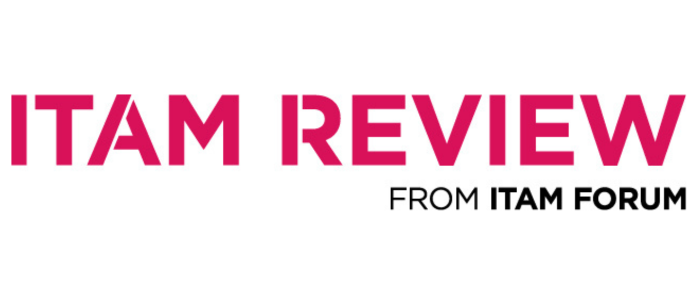Smart virtual machine licensing for 55% cost saving
 Capacity transformation and control software company CiRBA has launched a new Software License Control System designed to enable organisations to reduce the costs associated with processor-based software licensing.
Capacity transformation and control software company CiRBA has launched a new Software License Control System designed to enable organisations to reduce the costs associated with processor-based software licensing.
The firm claims to be able to help realise cost savings by an average of 55%.
The license control system here works by delivering optimal VM placements for processor-based licensing models and is an add-on to CiRBA’s Capacity Control Console.
Less processors/hosts = less licenses
CiRBA says its software determines optimised VM placements to both “maximise the density” of licensed components on physical hosts and isolate these licensed VMs from those not requiring the licenses.
CiRBA’s analytics also restrict placements of licensed VMs to the designated physical servers over time in order to ensure licensing compliance and continued efficiency.
“With the shift to datacentre class software licensing for virtual infrastructure, where licensing an entire physical host server allows an unlimited number of instances to be run, licensing optimisation is now becoming a capacity management challenge,” said Andrew Hillier, CiRBA CTO and co-founder. “By cleverly placing workloads on licensed servers in such a way that the overall footprint is minimised, license costs can be reduced by 40-70%. It is a showcase example of how the right analytics can save millions of dollars in unnecessary spend.”
CiRBA asserts that it has the ability to enable organisations to profile software licensing, configuration, policy and utilisation requirements for new VMs that are coming into an environment, to route these VMs to appropriately licensed physical servers, and to reserve capacity for those VMs through its Bookings Management System.
This (so says CiRBA) is “essential” when managing dynamic virtual and cloud environments, and also provides visibility into requirements to grow or modify license pools based on upcoming demand. Through this booking and reservation process, CiRBA’s technology proposition is an environment where density remains optimised by considering both the bookings and organic growth in the environment — and using this to forecast the impact on capacity and licensing.
All of this translates directly in to savings that can be realised through lower expenditures for renewals, deferral of new software license purchases, and reduced yearly maintenance. These savings can easily be in the millions of dollars, particularly on expensive operating system, database and middleware platforms.
“Over-spending on software licensing is rampant due to poor management controls and processes in most large enterprises,” said Torsten Volk, senior analyst at Enterprise Management Associates. “CiRBA’s new software license control module is uniquely positioned to help organisations both meet SLAs and also reduce hardware and software licensing requirements. This is a natural extension of CiRBA’s solution, and one which I think will be very valuable to its customers.”
Can’t find what you’re looking for?
More from ITAM News & Analysis
-
Broadcom vs Siemens AG - A Brewing Storm
The ongoing legal battle between VMware (under Broadcom ownership) and Siemens is yet another example of why ITAM goes far beyond license compliance and SAM. What might, at first glance, appear to be a licensing dispute, ... -
Shifting Left Together: Embedding ITAM into FinOps Culture
During one of the keynotes at the FinOps X conference in San Diego, JR Storment, Executive Director of the FinOps Foundation, interviewed a senior executive from Salesforce. They discussed the idea of combining the roles of ... -
Addressing the SaaS Data Gap in FinOps FOCUS 2.1
I recently reported on the FinOps Foundation’s inclusion of SaaS and Datacenter in its expanded Cloud+ scope. At that time, I highlighted concerns about getting the myriad SaaS companies to supply FOCUS-compliant billing data. A couple ...
Podcast
ITAM training
Similar Posts
-
Broadcom vs Siemens AG - A Brewing Storm
The ongoing legal battle between VMware (under Broadcom ownership) and Siemens is yet another example of why ITAM goes far beyond license compliance and SAM. What might, at first glance, appear to be a licensing dispute, ... -
Shifting Left Together: Embedding ITAM into FinOps Culture
During one of the keynotes at the FinOps X conference in San Diego, JR Storment, Executive Director of the FinOps Foundation, interviewed a senior executive from Salesforce. They discussed the idea of combining the roles of ... -
Addressing the SaaS Data Gap in FinOps FOCUS 2.1
I recently reported on the FinOps Foundation’s inclusion of SaaS and Datacenter in its expanded Cloud+ scope. At that time, I highlighted concerns about getting the myriad SaaS companies to supply FOCUS-compliant billing data. A couple ... -
The Future of ITAM
As an ITAM Industry Analyst, I’m often asked what ITAM’s future looks like. This can be a tough question to answer because when it comes to the future, there are endless possibilities. Often, it seems, some ...




